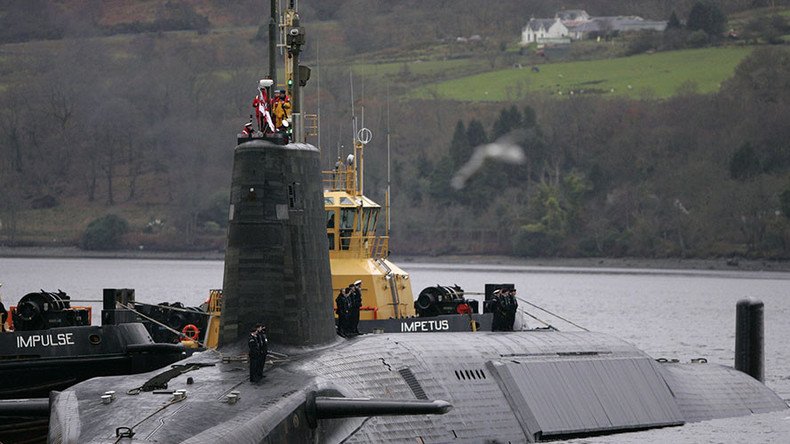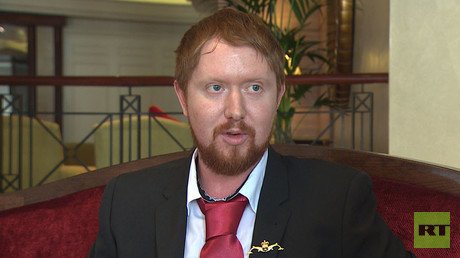Britain secretly upgrading its nukes without asking MPs - report

Britain is secretly upgrading its arsenal of Trident nuclear weapons and is developing an entirely new warhead, according to a report from the Nuclear Information Service (NIS). Controversially, Parliament is yet to consent to its renewal.
The Atomic Weapons Establishment (AWE) in Berkshire, where Britain’s nuclear warheads are manufactured and maintained, is working on a program to upgrade the current Trident warhead to produce a more powerful and accurate nuclear warhead, “Mark 4A,” the independent research body says.
Peter Burt of the NIS says: “The Mark 4A warhead modification programme will allow Trident nuclear warheads to remain in service until the middle of this century, and plenty of money is being spent to pave the way for developing a new generation warhead which will remain in service for even longer.”
A joint US-UK working group has been set up to allow collaboration on the programs, and new warheads have been tested at Sandia National Laboratories in the US.
The costs and the timetable of the program have not been revealed to Parliament, according to the report.
The modified warhead is however mentioned in a letter on the Ministry of Defence (MoD) website, dated July 2, 2014.
The letter says Dr Paul Hollinshead would be responsible for the “nuclear warhead capability sustainment programme” and for “commencement of Mk4A production in accordance with the Trident Manufacture Plan.”
The report reveals £85 million (US$124 million) has already been spent by the AWE on new nuclear warhead design studies.
Later this year the government is expected to table a Commons motion in favour of replacing the existing fleet of Trident submarines with four new boats. The government says they will cost £31 billion, but has set up a £10 billion contingency fund in the event of overruns.
The MoD has declined to comment on the overall costs of the Trident program on the grounds the information is classified.
The Campaign for Nuclear Disarmament (CND) meanwhile estimates it will cost £205 billion.
“The government is committed to maintaining minimum continuous at-sea deterrence to deter the most extreme threats to the UK and protect our vital interests – a decision on replacing the warhead will be taken when necessary,” a ministry spokesperson told the Guardian.
The report says the AWE is an important national resource in terms of its scientific expertise and equipment, and a big local employer that makes a significant contribution to the local economy.
It says if the Trident program is cancelled, the likelihood of outright closure of the establishment would be “low.”
On Monday, anti-nuke activists began a month-long blockade of the Berkshire atomic facility, arguing the weapons should not be renewed by Parliament later this year.
Throughout June, CND supporters will join activists from Trident Ploughshares and groups from across Europe to “blockade, to occupy, and to disrupt” the weapons manufacturing base.
Last August, the AWE was censured by UK regulators for failing to show a long-term plan for handling radioactive waste at its Aldermaston site.
The nuclear weapons factory also faces further action for failing to meet legal obligations to treat radioactive waste by 2014, according to a report published by the Office for Nuclear Regulation (ONR) last July.














